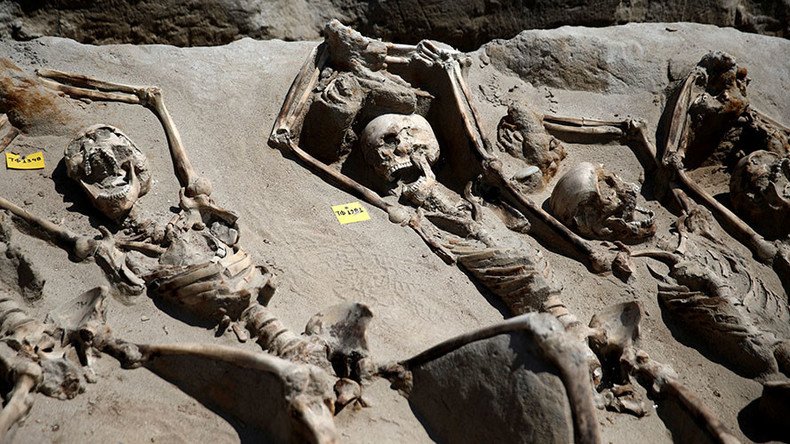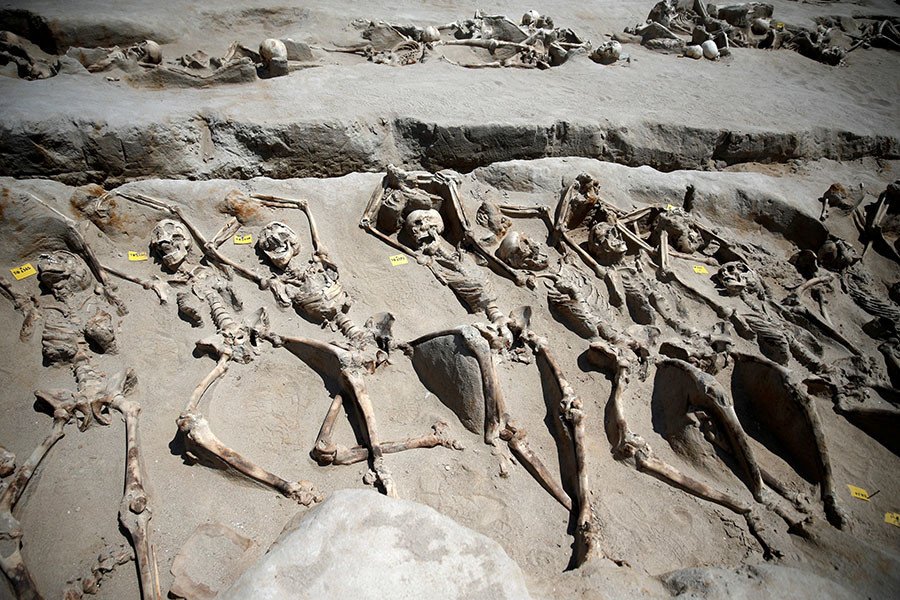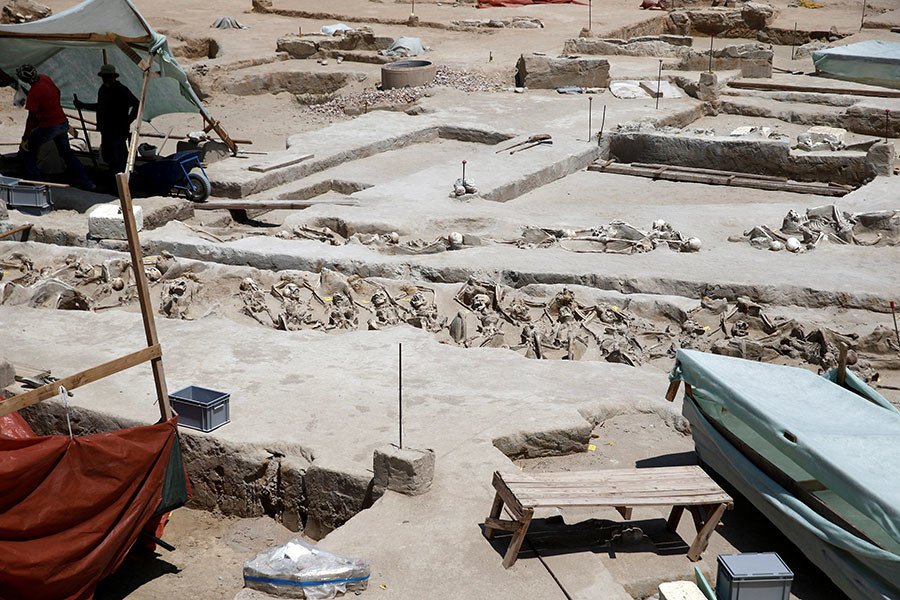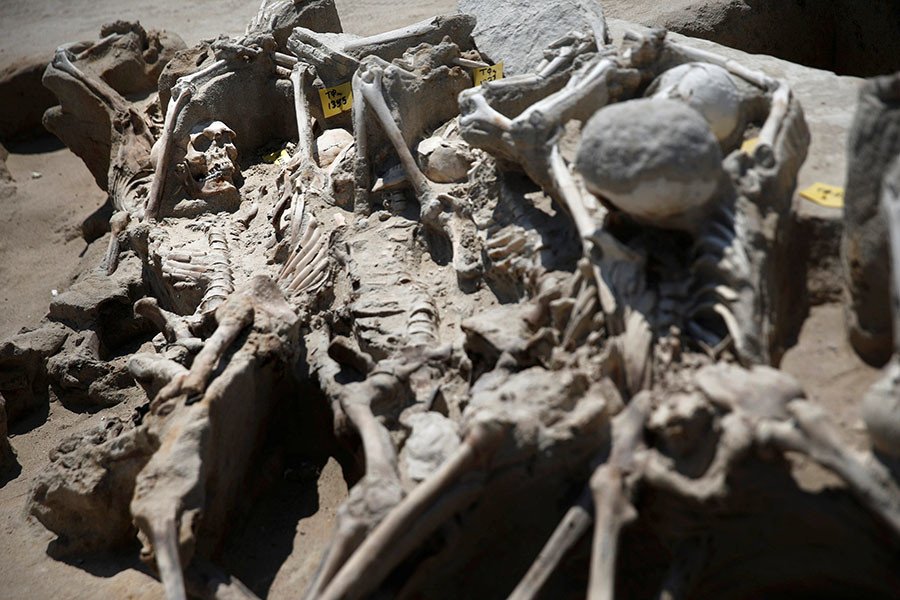Ancient execution: 80 shackled skeletons found in Greek cemetery (PHOTOS)

A discovery has been made in Greece that might chill you to the bone. At least 80 skeletons were unearthed at an ancient cemetery, their wrists bound by iron shackles, with the remains believed to be those of the victims of a mass execution.
Some of the skeletons in the Falyron Delta necropolis cemetery are lying in a neat row, while others are piled on top of each other, their jaws hanging open.
And although the bones were initially found earlier this year, few people have been allowed to have a look at the skeletons – until now.

Speaking to Reuters, archaeologists said the skeletons were all part of a mass execution.
"They have been executed, all in the same manner. But they have been buried with respect," said Stella Chryssoulaki, head of excavations at the site.
"They are all tied at the hands with handcuffs and most of them are very, very young and in a very good state of health when they were executed,” she added.
But why they were executed remains a mystery – and the orderly way in which they were buried suggests they were more than slaves or everyday criminals.

One theory is that they were supporters of an Athenian noble and Olympic champion by the name of Cylon, who staged an attempted coup in Athens in 632 BC with the help of his father-in-law, the tyrant of Megara. Once the coup failed, Cylon managed to escape from harm – but his supporters were killed.
"Perhaps with the DNA tests that we will do on these skeletons we may confirm or not this hypothesis that these deceased, these young people could be...part of a coup...an attempt by a noble to take power by force," Chryssoulaki said.

The cemetery, which dates from between the 8th and 5th century BC, was unearthed during the construction of a national opera house and library between downtown Athens and the port of Piraeus. It houses more than 1,500 bodies, including infants buried in ceramic pots and adults burned on funeral pyres or buried in stone coffins.












